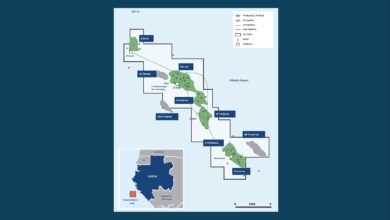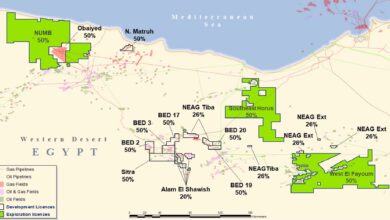Schlumberger introduces armor cladding alloy for drill bits
Smith Bits, a Schlumberger company, has introduced Aegis armor cladding that significantly improves bit body design flexibility and erosion resistance, increasing rate of penetration (ROP) and bit durability for longer runs. Composed of a proprietary tungsten carbide material, Aegis cladding increases bit erosion resistance by 400% and strength by 40% when compared to conventional matrix polycrystalline diamond compact (PDC) bits.
“Our new armor cladding technology combines innovative materials science with an electron-beam additive manufacturing process,” Kristi Vilay, President, Bits & Drilling Tools, Schlumberger, said. “This new manufacturing approach allows us to integrate a new proprietary material into our customized, fit-for-basin bits, providing a differentiated technology to improve our customers’ overall drilling performance.”
In addition to improving erosion resistance, Aegis cladding enables bit designs with taller blades and optimal nozzle placement. This results in more efficient cuttings evacuation that improves ROP.
Aegis cladding has undergone extensive field testing across five shale basins in North America. The technology has also been field tested in Europe, the Middle East and South America for both onshore and offshore applications.
In Oklahoma’s Anadarko Basin, two steel-bodied bits with Aegis cladding were deployed for an international oil and gas company in eight wells for a total of eight bit runs. The use of Aegis cladding enhanced the fit-for-basin bit design with taller blades and optimal nozzle placement. This increased ROP by 36% compared with direct offset runs of matrix PDC bits and saved the customer an estimated 179 hours of drilling time across the eight runs.




